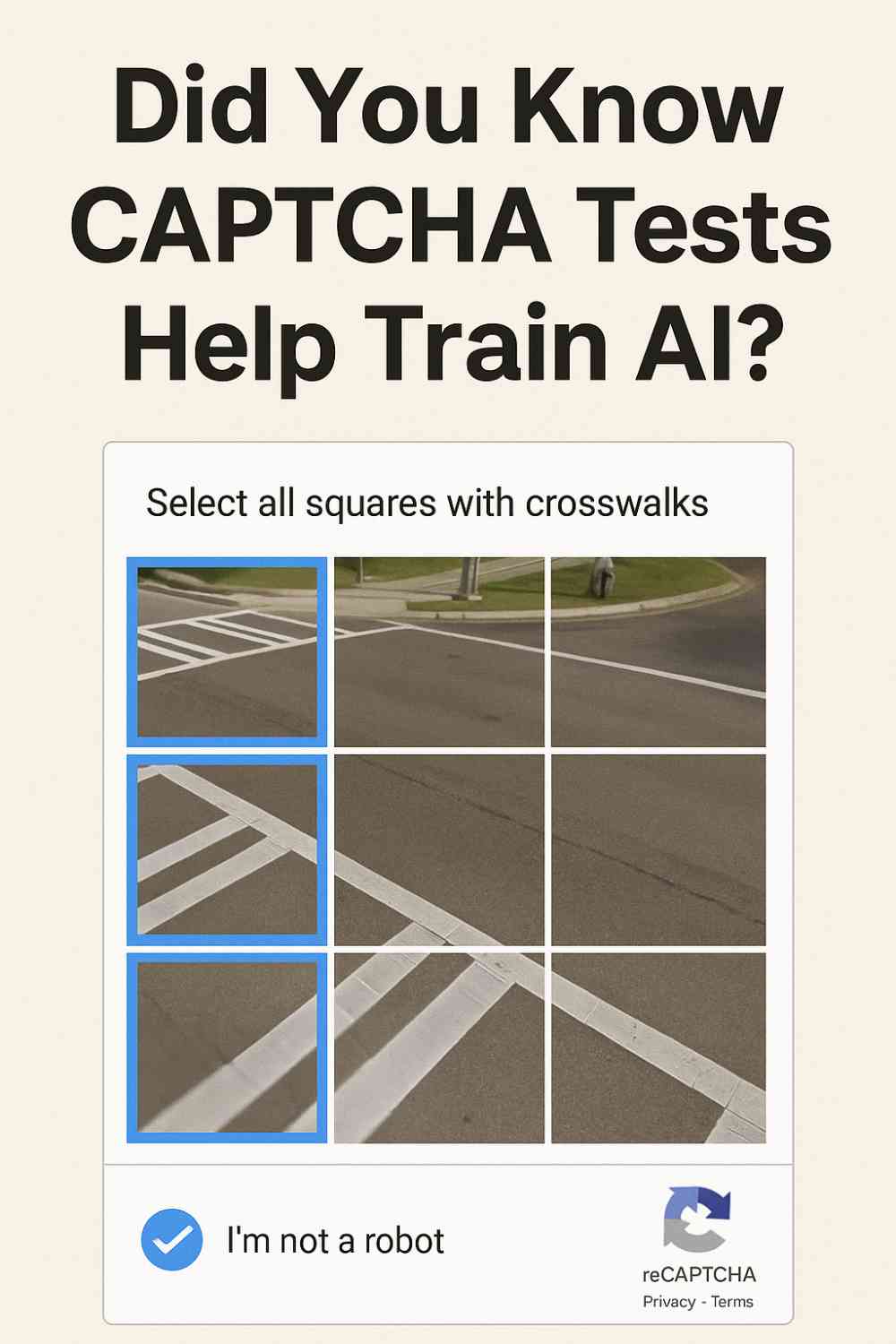 You’ve probably squinted at your screen, cursing under your breath while clicking on blurry crosswalks or distorted letters. CAPTCHAs—those little puzzles designed to prove you’re human—are annoying, sure. But here’s the kicker: every time you solve one, you’re not just verifying your humanity. You’re training artificial intelligence.
You’ve probably squinted at your screen, cursing under your breath while clicking on blurry crosswalks or distorted letters. CAPTCHAs—those little puzzles designed to prove you’re human—are annoying, sure. But here’s the kicker: every time you solve one, you’re not just verifying your humanity. You’re training artificial intelligence.
The Hidden Classroom Behind CAPTCHAs
Think about it. Why would a system designed to block bots ask you to identify traffic lights, buses, or storefronts? It’s not just about security. Those tasks are feeding data to machine learning models. When millions of people label images or transcribe text, they’re creating a massive, crowdsourced dataset—one that helps AI recognize patterns, objects, and even handwriting.
Google’s reCAPTCHA, for example, has been quietly schooling AI for years. Early versions asked users to decipher scanned text from old books. Later iterations made you pinpoint bicycles or fire hydrants. Each click was a tiny lesson for an algorithm.
Why Humans Make the Best Teachers (For Now)
Machines are fast, but they’re not perfect. They struggle with ambiguity—the kind of nuance humans handle instinctively. A child can spot a cat whether it’s curled up, mid-leap, or partially hidden behind a couch. An AI? It needs thousands of examples to get close.
That’s where we come in. By solving CAPTCHAs, we’re giving AI the context it lacks. Every mislabeled image or corrected transcription sharpens the system. It’s like a global game of “hot or cold,” where our collective clicks guide algorithms toward accuracy.
The Irony of Proving You’re Human… to Help Robots
There’s something darkly funny about this. We’re forced to jump through hoops to prove we’re not machines, all while making those machines smarter. Eventually, AI might get so good at mimicking human judgment that CAPTCHAs become obsolete. Then what? Will we need to write poetry or interpret abstract art to pass the test?
For now, though, the cycle continues. The better AI gets, the harder CAPTCHAs become—which means we’re stuck identifying motorcycles in grainy photos until the robots finally outsmart us.
How Your Clicks Shape the Future
This isn’t just about improving image recognition. The data from CAPTCHAs fuels everything from self-driving cars (which need to spot pedestrians) to medical AI (which analyzes X-rays). Your five seconds of frustration could indirectly help a surgeon detect tumors or a car avoid a collision.
Of course, not everyone’s thrilled about unpaid labor. Critics argue that companies profit from our clicks without compensation. But love it or hate it, this symbiotic relationship between humans and machines is reshaping technology—one CAPTCHA at a time.
The Next Evolution: Invisible CAPTCHAs?
Google’s already testing “invisible” reCAPTCHA, which monitors user behavior (mouse movements, typing speed) to distinguish humans from bots. No more puzzles—just silent observation. It’s convenient, but also a little eerie. If AI can learn to act human, will we need new ways to prove we’re not bots?
Maybe the future holds a role reversal: machines creating CAPTCHAs for humans to fail. Imagine a robot sighing as you mislabel a 4K image. “Ugh, typical organic intelligence.”
So… Should You Feel Used?
Maybe a little. But there’s a bigger picture. Every CAPTCHA you solve nudges AI forward, pushing tech into smarter, stranger territory. Next time you’re staring at a grid of traffic lights, remember: you’re not just unlocking a login page. You’re part of a silent, global classroom—where humans teach machines how to see the world.
If you enjoy puzzles that sharpen the brain a little more than clicking boxes, try putting your skills to the test with the Bing Homepage Quiz or stay sharp with the latest Bing News Quiz. And if you’re hungry for even more daily challenges, you’ll find plenty waiting over at Weekly Quiz.
And hey, at least it’s more productive than doomscrolling.

